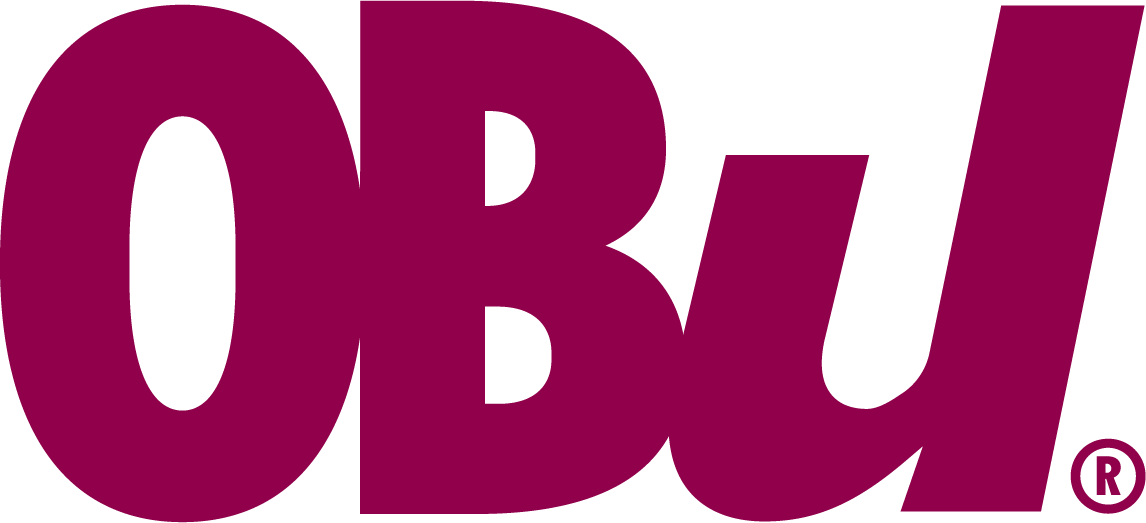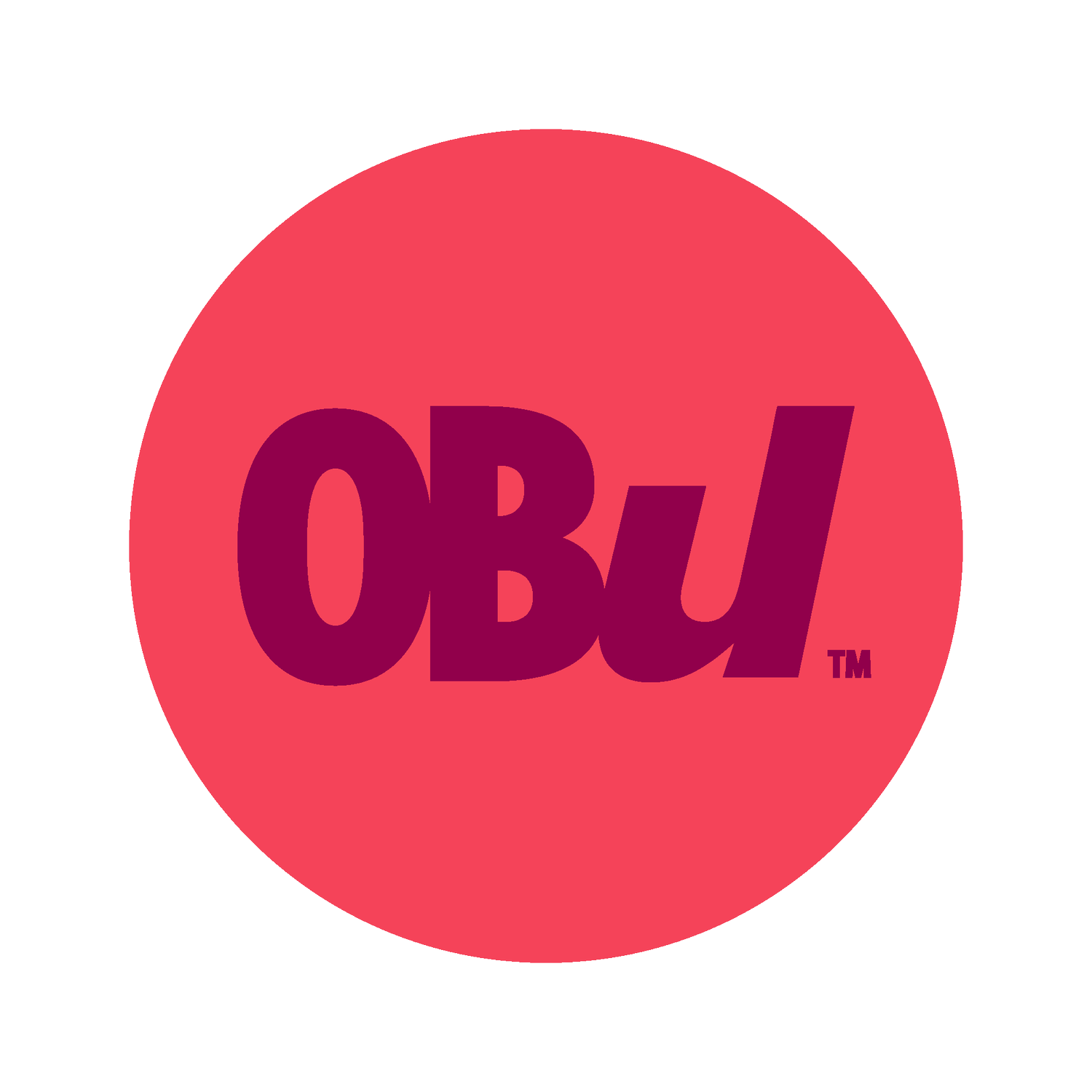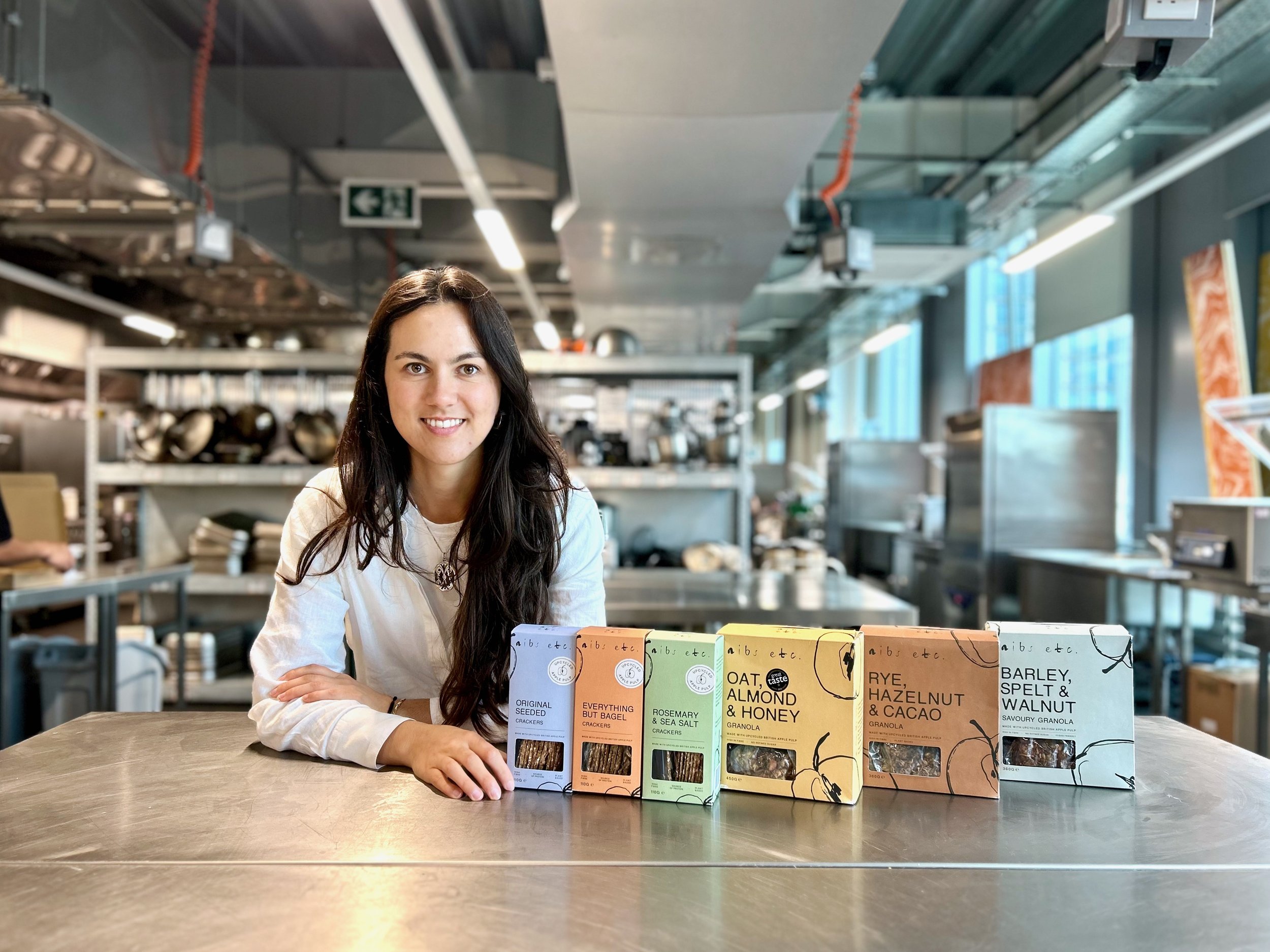nibs etc.: The UK’s First Upcycled Snack Brand Turning Food Waste Into a Movement
Join us for a conversation with Chloë on 12th December, RSVP here.
When Chloë Stewart, founder of nibs etc., first started delving into food waste, she found herself deeply moved by the sheer scale of the problem. “I love food,” she says. “And I’m emotional about food waste. The more I learned about food supply chains and where food was being wasted, the less I could un-see. Especially when that waste was often highly nutritious.”
The Inspiration Behind nibs etc.
It was this passion for food—and the realisation that it wasn’t just food that was being wasted, but nutrients as well—that sparked the idea for nibs etc. The company is the UK’s first upcycled snack brand, aiming to eliminate food waste by transforming the lost nutrients from food and drink manufacturing into delicious, award-winning snacks.
““It’s estimated that over 80% of people don’t get enough fibre in their diets,” Chloë explains. “And yet, nutritious ingredients are being discarded at alarming rates. I knew I had to do something about it.””
Chloë’s mission, however, is about more than just reducing food waste. It's about confronting the underlying challenges of food security, climate change, and the growing global population. “Food production accounts for a third of human-caused greenhouse gas emissions,” she points out.
“Yet, millions of people go hungry every day, while perfectly edible food ends up in landfills. Something is broken in the system, and it needs to be fixed.”
Turning food waste into a force for good.
In creating nibs etc., Chloë has addressed the urgent need for sustainable solutions. By transforming food scraps into snacks, nibs etc.. not only addresses food waste but also brings healthy, fibre-rich alternatives to market. It’s a win-win for both people and the planet, and it has turned Chloë’s vision into a reality—one that is both financially viable and environmentally impactful.
But why should businesses have to choose between financial success and environmental sustainability? For Chloë, they shouldn’t.
“I personally don’t think we should be starting businesses that aren’t committed to regenerating our resources—people and the planet,” she asserts. “The future of the ecosystem in which the startup will thrive should be built into the fundamentals of the business itself.”
Building a circular business model that thrives on sustainability.
While many startups with traditional linear business models may be more focused on short-term profit, Chloë’s approach is more long-term and circular. It’s about building a sustainable business model that not only benefits the bottom line but contributes to the greater good.
“Yes, financial profitability and growth may take longer with a circular business model,” she acknowledges. “But because we are building a business that regenerates our resources, the opportunities are vast and the long-term gains can be even greater.”
Chloë’s commitment to circularity goes beyond just the business. The impact of upcycling over 7 tonnes of apple pulp over the last three years is measurable. If that waste had ended up in a landfill, it would have generated 17.5 tonnes of greenhouse gas emissions.
But Chloë’s success isn’t just measured by numbers; it’s about the ripple effect her business has had on customers. “When suppliers start proudly stating they work with us, or consumers tell us they're trying to upcycle their pulp, it feels like we’re really changing mindsets, which is incredible,” she says. “When the BBC featured us in an article about food waste upcycling, I knew that we were making a real impact.”
How investors and diverse leadership fuel innovation and growth.
Building a startup like nibs etc. has required investment. Angel investors have played a crucial role in backing nibs etc. through its early stages.
While most of the company’s angel investors take a hands-off approach, a few offer catch ups once or twice a year. And when these do happen, they serve as an invaluable space for collaboration, feedback, and growth, particularly as a solo founder.
“It’s an opportunity to learn from investors with specific expertise in areas where I might be struggling, and to share both highs and lows. One of the most important elements of these meetings is that they are a safe space for honest conversations, where we can be vulnerable and open. Ultimately, we’re both on the same team—we want this business to succeed.”
In her view, the role of angel investors is about much more than just capital. “The investors who support us beyond just providing funds have a genuine interest in seeing the business grow, and that’s invaluable. They share their knowledge, insights, and industry connections, helping us navigate the complexities of growing a mission-driven business.”
One of Chloë’s key beliefs is the importance of diversity in angel investing.
“Time and time again, it’s proven that diversity—whether it’s gender, ethnicity, or background—helps everyone. Diversity in thought leads to more creative problem-solving and higher innovation rates.”
In the case of gender diversity, if women were able to start and scale businesses at the same rate as men, we could add up to £250 billion to the UK economy.”
Despite the overwhelming evidence supporting the positive effects of diversity, Chloë knows that systemic barriers still exist. “We can’t be what we can’t see,” she says. “The imbalance in startup leadership isn’t due to a lack of talent—it’s about providing opportunities for people from diverse backgrounds to be in positions of leadership, including in the angel investing space.”
Building Resilience in Angel Investing - What to look for in founders and the startups you back
Chloë’s call to action for aspiring angel investors is simple but crucial: “Understand where your industry interests and strengths lie. Focus on opportunities in these areas, and get to know the founder as much as you get to know the business model. Don’t be afraid to say ‘no’ if the opportunity isn’t the right fit.”
Chloë’s advice to first-time investors highlights the importance of resilience in startup founders:
“Look for drive, determination, and adaptability in the founders you back. The business idea may be important, but the team’s ability to survive and adapt is just as crucial.”
Lessons for the Future: Scaling with Purpose and Vision
If she could go back and give her pre-startup self advice, it would be this: “There’s no such thing as a stupid question. Don’t be afraid to ask for help or guidance, whether it’s for introductions, advice, or insights. You’ll move forward faster and, in turn, pay it forward when you’re able.”
Looking to the future, Chloë’s next priority is expansion. nibs etc. is set to launch in two major national retailers in the new year and is seeking £500K in investment to fuel its growth. “We’re looking for investors who can help supercharge our plans with industry knowledge, connections, and follow-on investment as we expand into new markets.”
As Chloë looks to the future, her vision is clear: scaling nibs etc.. is about more than financial success. It’s about creating sustainable, impactful change.
“Over the next 12-18 months we will be launching into national retailers, expanding our revolutionary upcycled snack ranges by developing new IP, and improving key elements of our production to take us to profitability.” she says. “And key to this growth will be building a top-tier, passion-driven team”
Through her leadership, nibs etc.is proving that businesses can be profitable, sustainable, and socially responsible. It’s a company that exemplifies the power of circular thinking in addressing some of the world’s most pressing issues—food waste, sustainability, and the need for diversity in business.
Interested in Learning More About nibs etc.?
Reach out directly to Chloë to explore how her passion for tackling food waste and promoting sustainability is reshaping the future of the snack industry. Whether you're a conscious consumer or an impact-driven investor, connect with Chloe to discover the vision behind the UK's first upcycled snack brand. You can contact Chloë here.
Don’t miss our upcoming Halo webinar, In Conversation with Chloë Stewart, founder of nibs etc.. RSVP here to join us for this exciting discussion.
Join the Halo Membership for More Inspiration on Impact Investing
Looking for more stories of visionary entrepreneurs and impactful investments? Join the Halo membership here to connect with like-minded individuals who are balancing profit and purpose. Gain exclusive access to webinars, expert insights, and a community dedicated to supporting sustainable, impact-driven businesses.






